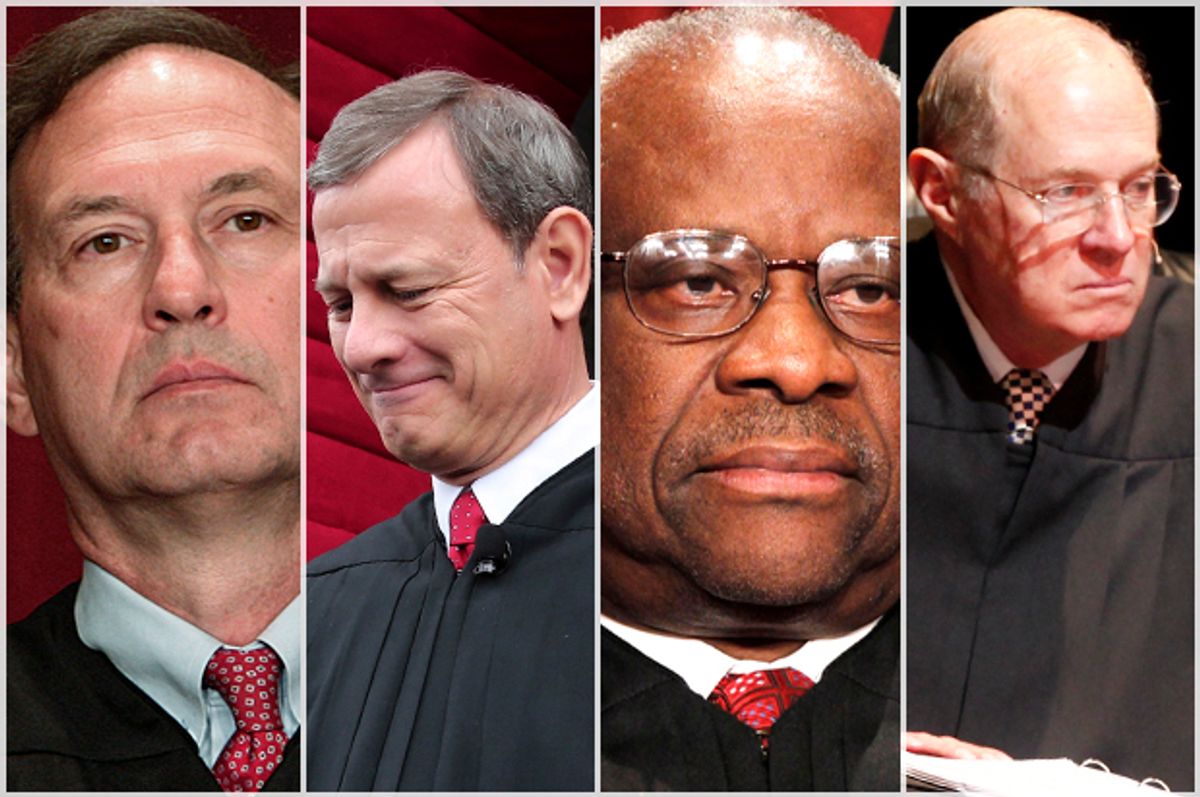The Supreme Court ruled on Tuesday that immigrants lacking U.S. citizenship who have been targeted for possible deportation can be detained without bond hearings — even if they are in the United States legally.
The case of Jennings v. Rodriguez involved whether it was constitutional for the government to detain immigrants indefinitely without allowing them to have periodic individualized bond hearings. This practice was even used on immigrants who had attained permanent legal status or were seeking asylum, raising questions about whether basic human rights were violated in cases where the detention lasted for months or even years. The U.S. Court of Appeals for the 9th Circuit had previously found that the government needed to provide individualized bond hearings for detained immigrants every six months. It also found that detaining someone past six months after their initial detention was only permissible if the government can prove doing so is justified, according to The Washington Post.
In overturning those rules by a 5-3 vote, Justice Samuel Alito explained on behalf of the majority that the law clearly gives the government the right to detain immigrants considered for deportation "until the end of the applicable proceedings" and insisted that "there is no justification for any of the procedural requirements" established by the Ninth Circuit.
By contrast, Justice Stephen Breyer wrote on behalf of the dissenting judges (himself, Ruth Bader Ginsburg and Sonia Sotomayor) that "the many thousands of individuals involved in this case are persons who believe they have a right to enter into or remain in the United States, and a sizable number turn out to be right." He added that it is wrong for the government to be "denying them the bail hearings that the law makes available even for those accused of serious crimes."
Justice Elena Kagan recused herself from the case due to work that she had done as solicitor general under President Barack Obama, whose Department of Justice first appealed the Ninth Circuit ruling to the High Court. The Trump administration continued the appeal to the Supreme Court.
Legal experts expect the ruling to have a major impact on immigrants living in the U.S. today.
"The decision is a setback for immigrants and immigrant rights groups who have argued for years that these bail hearings are necessary. But the court left open the bigger question of whether the Constitution requires such hearings, meaning that these same plaintiffs can now make that claim in the lower court," Stephen Vladeck, a professor of law at the University of Texas, told CNN on Tuesday.
"The Trump administration has asked Congress to increasing funding to detain more immigrants, thus even more immigrants may be detained in the coming months, and will have to wait even longer for their day in immigration court," Stephen W. Yale-Loehr, a professor of Immigration Law Practice at Cornell Law School, also explained to CNN on Tuesday.



Shares